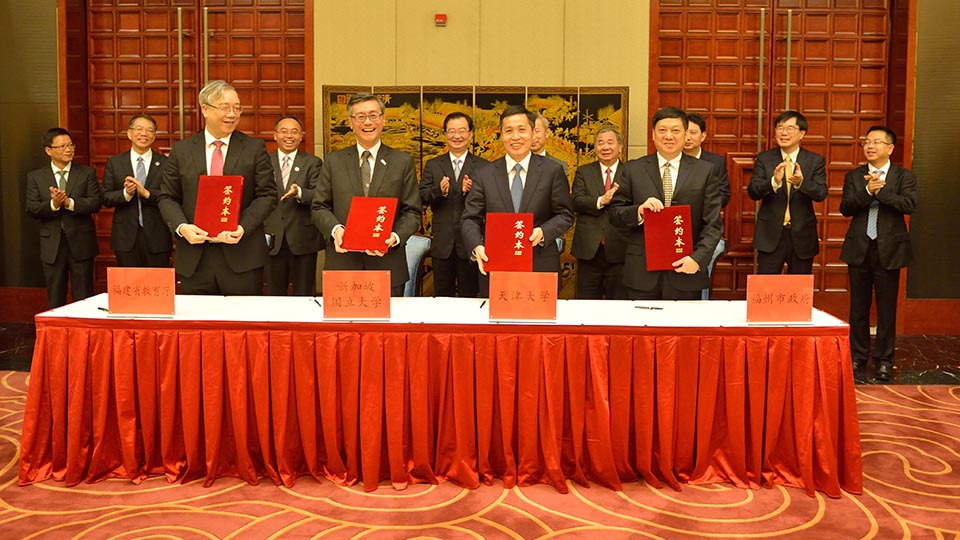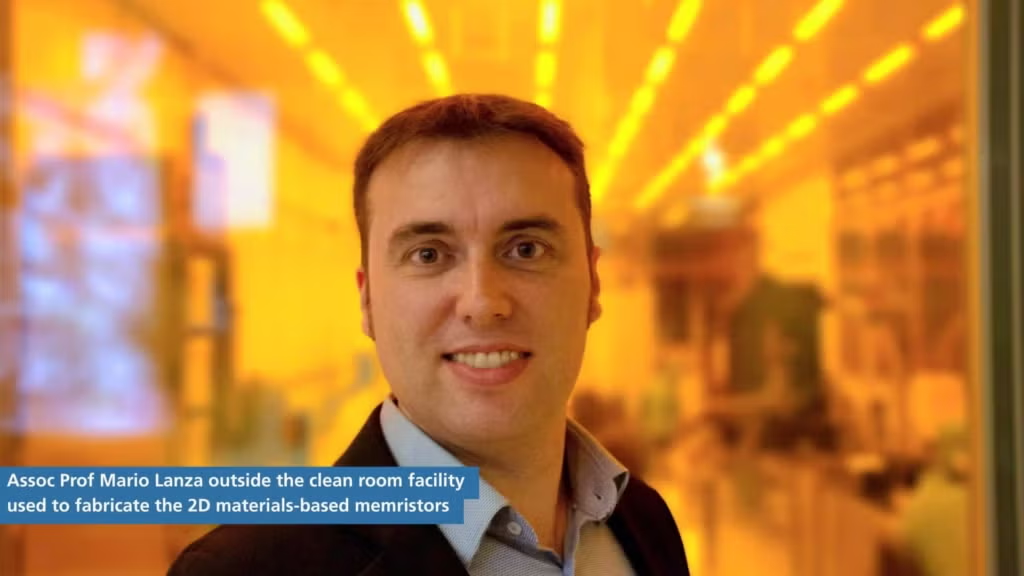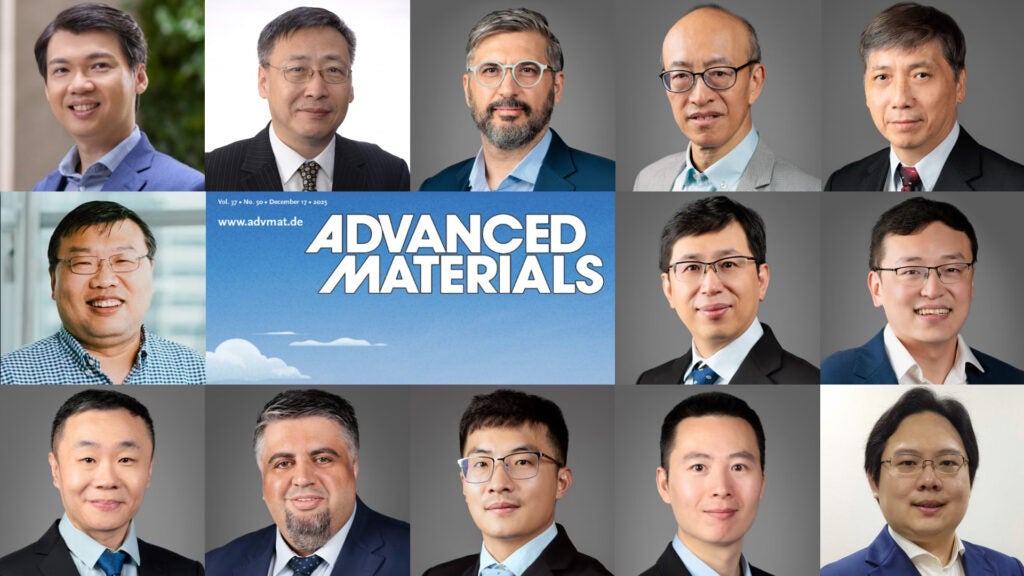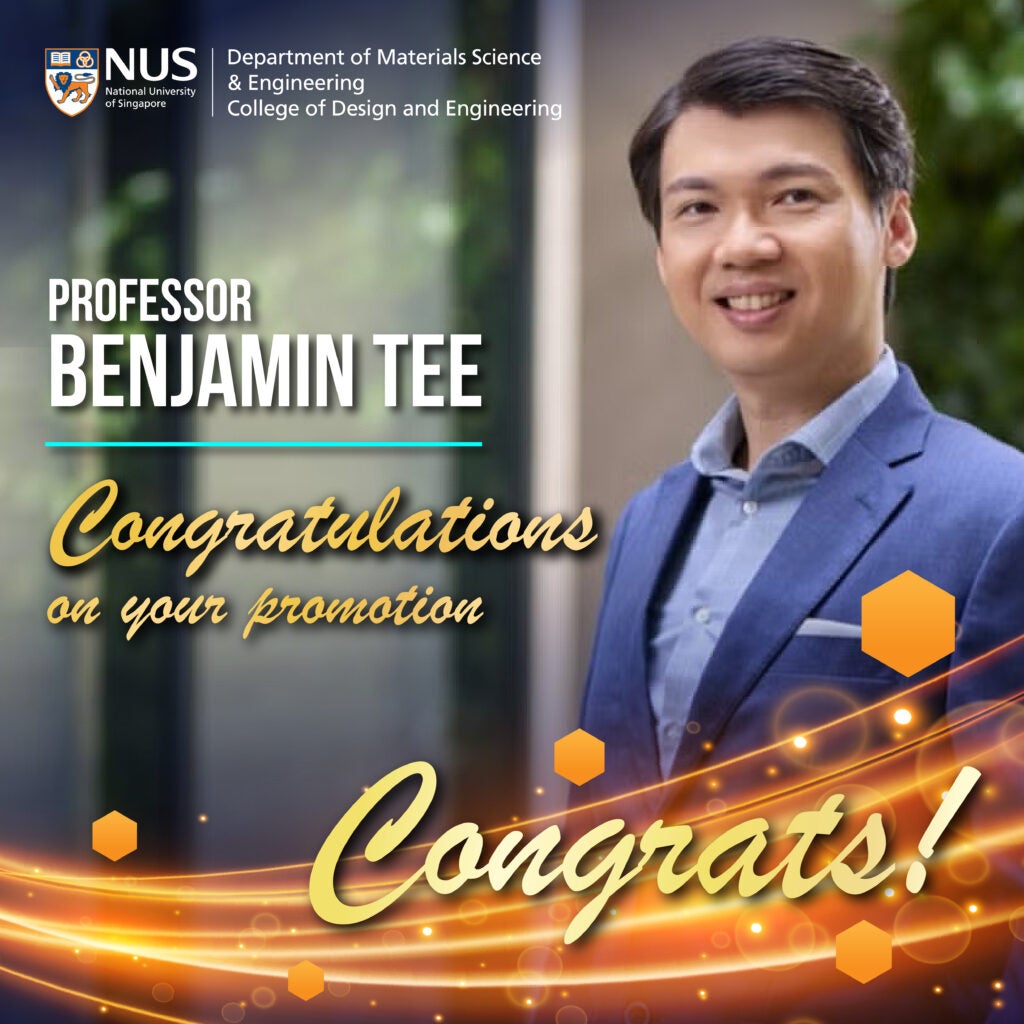New institute to promote research and develop talents in optoelectronics, flexible electronics, advanced manufacturing, energy materials and advanced catalysis
The National University of Singapore (NUS) is collaborating with Tianjin University (TJU), the People’s Government of Fuzhou City and the Education Department of Fujian Province to establish the Tianjin University-National University of Singapore Joint Institute in Fuzhou, China. Fully funded by Fuzhou and located in TJU (Fuzhou) International Campus, the Joint Institute is expected to comprise about 210 researchers and up to 240 doctoral students working in 30 research groups by 2023.
The new Joint Institute aims to promote research and develop talents in optoelectronics, flexible electronics, advanced manufacturing, energy materials and advanced catalysis.

(Left to Right) Lin Heping, Director, Education Department of Fujian Province; NUS President Prof Tan Eng Chye;
TJU President Prof Zhong Denghua; and You Mengjun, Mayor of Fuzhou City.
Two agreements were signed on 1 December 2018, namely the Collaboration Agreement between NUS and TJU, and the Cooperation Agreement between the People’s Government of Fuzhou City, Education Department of Fujian Province, TJU and NUS.
NUS President Professor Tan Eng Chye said, “NUS has a longstanding partnership with Tianjin University, which is renowned for its strong expertise in engineering, and we also have a growing presence in China. The TJU-NUS Joint Institute in Fuzhou is a timely and exciting extension of our relationships with universities, industries and government offices in China through scientific and technological cooperation. We look forward to contributing our know-how in chemistry, material science and engineering, as well as working closely with TJU researchers, to co-create new capabilities and drive innovation in Fuzhou’s industrial sector. We are confident that the Joint Institute will become a vital innovation platform for knowledge creation, technology transfer and talent cultivation.”
TJU President Professor Zhong Denghua said, “National University of Singapore, a world-class university, is among our most valued strategic partners. The TJU-NUS Joint Institute in Fuzhou under the strong support from local government is a joint endeavour for education and research collaboration with an aim to prepare talents more globally competent and produce influential research outcomes. We believe the Joint Institute will be a demo for tripartite partnership between universities, industry and government. TJU is ready to work closely with NUS colleagues in the areas of common interests and therefore contributes to the socio-economic development of the city, the province and more broadly the country.”
Collaborative research centres to pioneer cutting-edge technologies
The new institute will have a dedicated building, which will be ready by 2020, to house three research centres jointly set up by NUS and TJU to carry out collaborative research activities. These centres are:
- Emerging Optoelectronics and Flexible Electronics Centre: This centre will focus on research areas related to flexible electronics and emerging optoelectronics based on organic semiconductors, 2D materials, quantum dots and functional nanomaterials.
- Advanced Manufacturing Centre: This centre will focus on research and technology development for advanced manufacturing technologies.
- Energy Materials and Catalysis Centre: This centre will focus on the areas of green and renewable energy and environmental research.
Developing talents to support industry growth
The Joint Institute will host up to 60 NUS doctoral students per year. These students will participate in its research projects and they will spend time in both Singapore and China. Researchers at the Joint Institute will also work closely with Fuzhou City and its industries to create opportunities for learning and research.
* Article from NUS news





